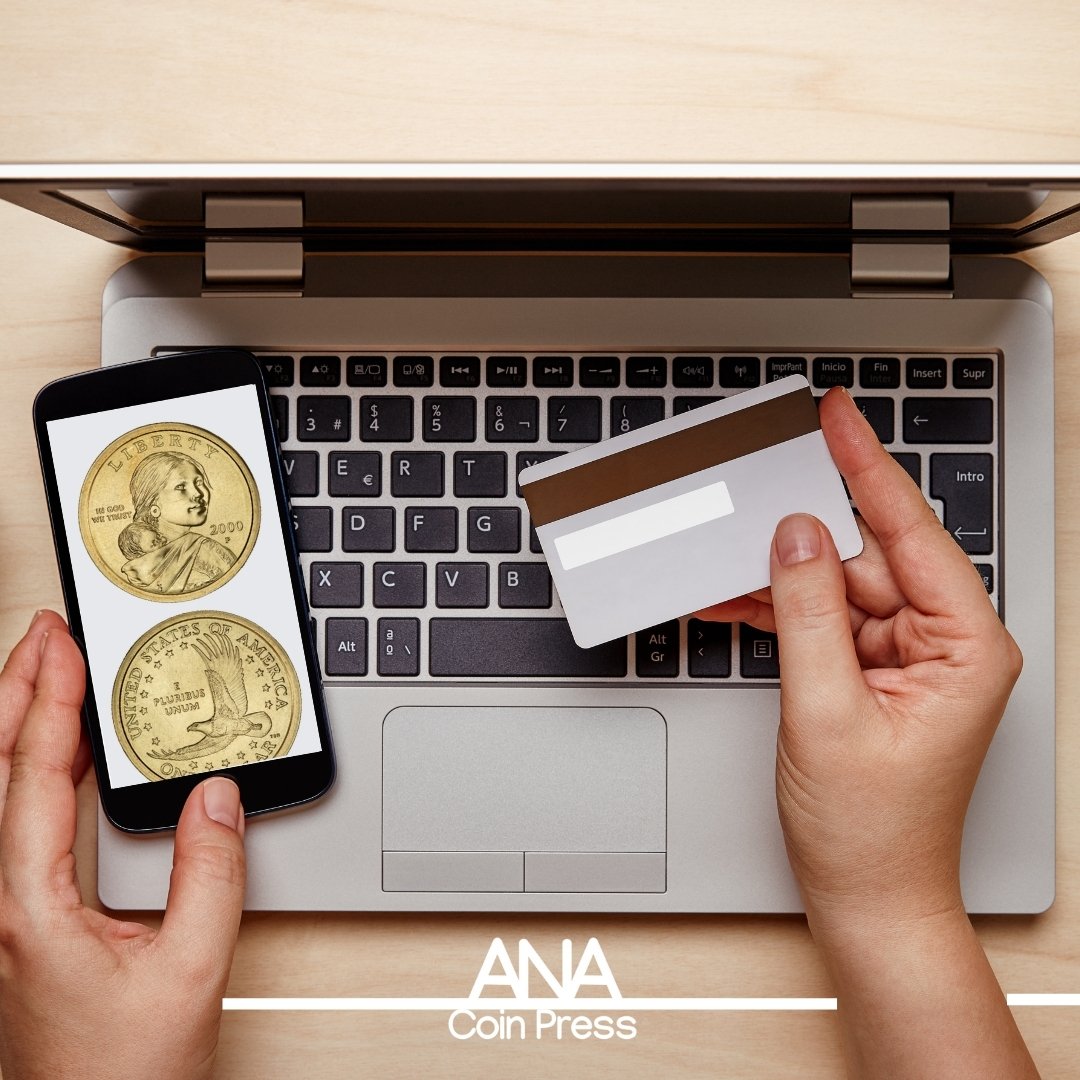Purchasing Coins Online
In this day and age, it’s not uncommon to make online purchases. For many, it has become a preferred way to shop. If you’re interested in buying coins online, however, you have to go about it a bit differently than if you were purchasing other consumer products. A collectible coin is not the same beast as a new phone; every single one is different, and there is no guaranteed price. The list below details three key factors that should be considered when attempting to acquire numismatic collectibles online.
Where to Buy
There are plenty of websites that sell coins, though they likely aren’t sites you’re used to coming to for day-to-day purchases. eBay is the closest it comes to a one-stop shop for coins. People from Los Angeles to Tokyo and everywhere in between list coins for sale, everything from two-dollar wheat pennies to five-figure gold. In general, eBay is better for less-expensive coins. The higher the asking price a coin has, the more you run the risk of potential counterfeits. Because eBay listings have little to no oversight, you do have to be confident that you trust the seller and the authenticity of the item you’re buying.
If you’re shopping with a higher budget and/or want a safer marketplace, you can turn to more specific websites and sellers. Many individual dealers have websites from which you can purchase coins directly from their inventories. As long as you’re trading with a reputable dealer, you can rest easy that you’re getting a genuine coin. The American Numismatic Association (ANA) has an online dealer directory (coin-dealer-directory.money.org) where you can find dealers locally and across the nation.
Finally, there are auction houses. You’re not likely to find many coins under $100 on these websites (or $1,000, depending on the auction house), but if they’re within your means, you may rest assured that coins at auction have been vetted and evaluated by experts. Some of the leading coin auction houses include Great Collections (the official auctioneer of the ANA), Heritage Auctions, Stack’s Bowers, and David Lawrence Rare Coins. All run online auctions with live bidding and are widely trusted businesses.
Where Not to Buy
In this day and age, many of us default to Amazon when shopping online. This is, however, the last place you should look for coins online. The great majority of coins listed on Amazon are overpriced or counterfeit, and the use of stock images makes it all too likely that you’ll receive a coin that doesn’t match the photo. Reputable dealers aren’t using Amazon, so you shouldn’t be buying there, either.
Authenticity
Verifying the authenticity of the coin you’re buying online is one of the most important factors involved in your potential transaction. Verifying items will get easier as you gain experience, but there are a few things you can do to protect yourself right out of the gate.
If you have a local coin dealer in your area, their expertise can be a priceless resource. Form a relationship with them, and most will be happy to look over a listing and offer a second opinion.
Another good practice is to investigate the sellers themselves. If you’re buying on eBay, comb through their feedback for any complaints and be sure to review the seller’s return policy. If they have any identifying information in their profile, go the extra mile and look them up on Google.
If you’re buying from an individual dealer or auction house, check their websites for guarantees of authenticity and membership in industry regulating organizations, like the Professional Numismatists Guild (PNG). A quick Google search in these cases can also surface enlightening reviews and feedback from buyers participating in collecting forums.
At the end of the day, buying coins online is extremely convenient, but understand that these transactions deserve an extra measure of due diligence. For more resources regarding online numismatic purchases, visit the money.org’s Consumer Awareness page, and check out the ANA’s Tips for Online Coin Auctions.
Happy Collecting!
About the American Numismatic Association
The American Numismatic Association is a nonprofit organization dedicated to educating and encouraging people to study and collect coins and related items. The Association serves collectors, the general public, and academic communities with an interest in numismatics.
The ANA helps all people discover and explore the world of money through its vast array of educational programs including its museum, library, publications, conventions and numismatic seminars

